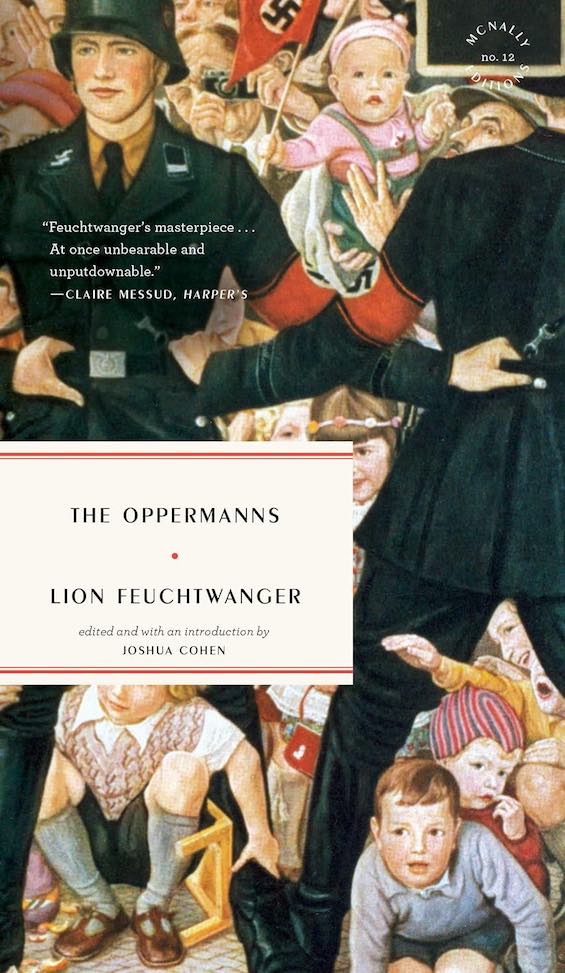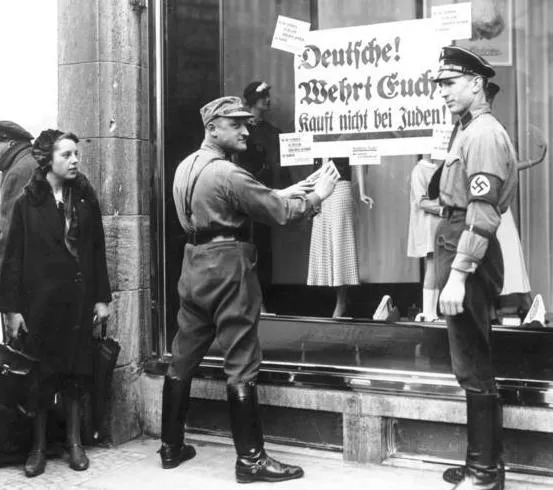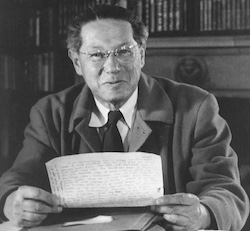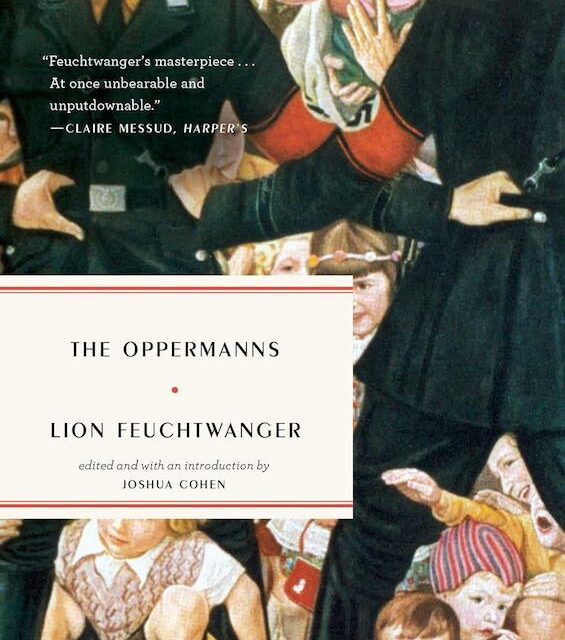
Estimated reading time: 5 minutes
From a distance of ninety years, it’s difficult for many Americans to understand how Adolf Hitler could have come to power in such a highly advanced and cultured country as Germany. And at the same time, many of us wonder why, with Hitler’s true intentions so clearly written down in Mein Kampf, all half-million Jews in Germany didn’t flee once the deranged little man came into office as Chancellor. Of course, innumerable scholars have puzzled over these same questions, and they’ve written hundreds if not thousands of books about their conclusions. But a novel, written contemporaneously by a German Jew, casts additional light on the matter. In his early anti-Nazi novel, The Oppermanns, Lion Feuchtwanger writes knowingly about the disintegration of one upper-middle-class German Jewish family in Berlin during the fateful events of 1932 and 1933.
Three brothers passively observe the rise of the Nazis
Feuchtwanger centers his story on the three Oppermann brothers and their families. They’ve become prosperous through the furniture business founded two generations earlier by their grandfather. Gustav, the oldest, is about to turn fifty as the novel opens. He’s a writer with a modest reputation at work on a biography of the German Enlightenment philosopher Gotthold Lessing. Gustav’s brother, Martin, manages the manufacturing business and the nationwide chain of retail furniture shops the family owns. And their brother, Edgar, is a world-renowned surgeon.
All three Oppermann brothers are resolutely apolitical, only nominally observant, and, like most German Jews, strongly patriotic. Also like so many other Jews—and millions of Christian Germans as well—they’re convinced that things will eventually turn around despite the ever-increasing antisemitism and the violence on the streets between the Nazi stormtroopers and the Communists. The brownshirts are roughing up a few Jews here and there, and maybe even killing one or two? Well, that has nothing to do with them.
The Oppermanns by Lion Feuchtwanger (1933) 400 pages ★★★★☆

The action takes place during a fateful ten-month period
The action in The Oppermanns spans the ten-month period between November 1932 and August 1933. When the story opens, the Nazis had received thirty-seven percent of the vote in the July elections and become the largest party in Germany’s Reichstag. Barely six months later, on January 30, 1933, President Hindenburg appointed Adolf Hitler Chancellor of Germany. Just one day later, Hitler dissolved the Reichstag. By the end of February 1933, he assumed “emergency powers” following the burning of the Reichstag, and less than a month later, opened the Dachau concentration camp. On April 1, the Nazis staged a one-day boycott of German shops. The book burnings began in May. And by the end of the summer, thousands of Communists, socialists, labor leaders, and Jews have been confined to the growing number of concentration camps. The shape of the future was there for all to see.
The noose tightens around the family
The three Oppermann brothers are incredulous as these events unfold. They wonder, “Did people really want lunatics to rule instead of locking them up?” And, gradually, the noose tightens around each of them in a personal way.
- Gustav signs an anti-Nazi petition along with hundreds of other intellectuals and is pilloried in the Nazi press for months afterward. He loses his publishing contract.
- Edgar cannot persuade the authorities to appoint his most able assistant, a Jewish surgeon, to a permanent post on his staff. No official is willing to award a prestigious post to a Jew.
- Martin finds he is unable to resist pressure from a much smaller competitor, a rabidly antisemitic officer in the Nazi Sturmabteilung, the SA, to sell him the family’s business.
- And Martin’s older son, a brilliant gymnasium student, finds himself in the crosshairs of the new Nazi teacher assigned to his class.
Meanwhile, their brother-in-law, a Jew from the East who possesses American citizenship, argues in vain that they should all leave the country at the earliest opportunity. But we can see that the mounting pressure might force them to do so, anyway.
About the author

Lion Feuchtwanger (1884-1958) was a bestselling novelist in his native Germany in the 1920s. Born to a family that was both Jewish and patriotic German, he served in the German Army in World War I. Because he sometimes wrote about Jewish themes and was close to the Leftist writer Bertolt Brecht, the Nazis persecuted him and, after taking power, burned his books. He published The Oppermanns in Amsterdam from exile during that time.
Feuchtwanger fled to southern France but was interned there after the German invasion. His wife arranged his escape in 1940 to Canada and eventually the United States with the help of Varian Fry and US Consul Hiram Bingham. He settled in Southern California, becoming part of the German diaspora in and around Hollywood. But his work never found favor in America.
For related reading
For an insightful account of how the Nazis rose to power, see The Nazi Seizure of Power: The Experience of a Single German Town, 1922-1945, Revised Edition by William Sheridan Allen (Explaining the Nazi seizure of power).
Be sure to check out Good books about the Holocaust and Worthy books about Jewish topics.
You’ll find other great reading at:
- 25 most enlightening historical novels
- The 10 best novels about World War II
- Top 10 great popular novels
And you can always find my most popular reviews, and the most recent ones, on the Home Page.




























Hey Mal,
You might want to take a look at new book called We Must Not Think of Ourselves by Lauren Grodstein. It is fiction based on the diaries kept and hidden in the Warsaw Ghetto. I think it’s worth your review.
Yes, and I reviewed it in January at https://malwarwickonbooks.com/before-the-ghetto-uprising/.